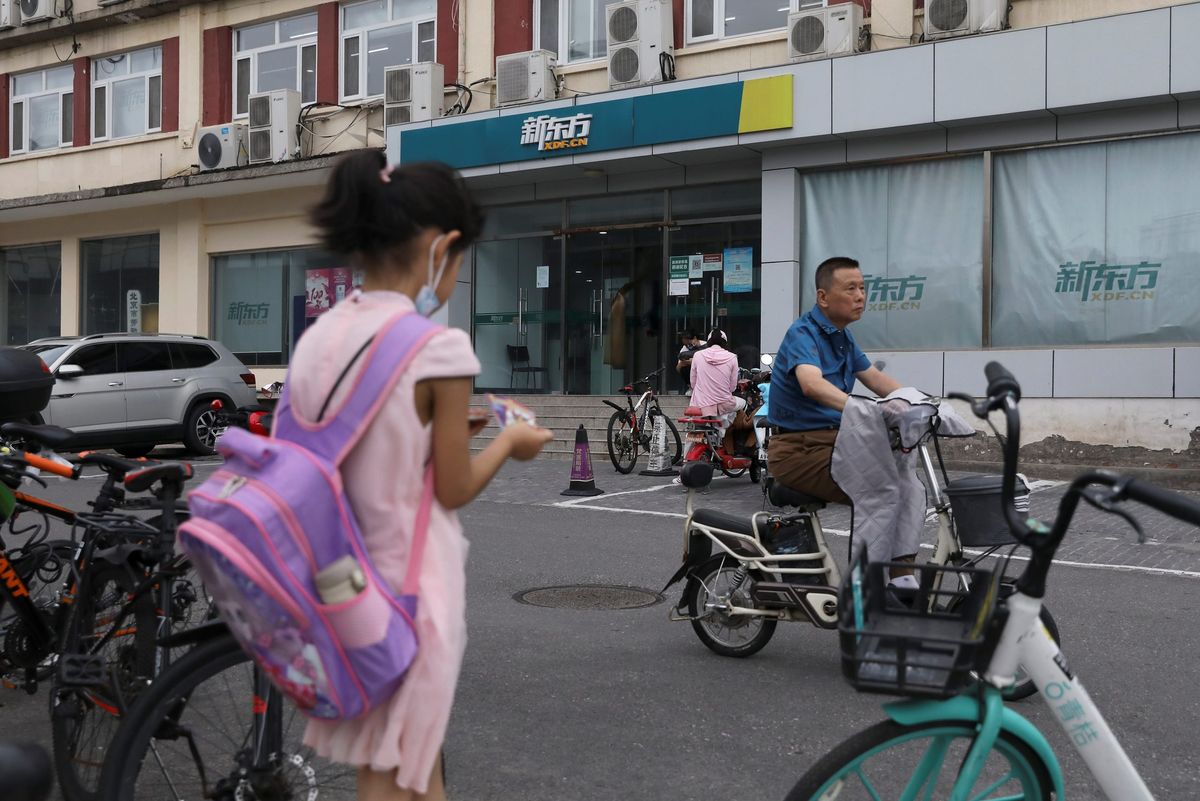How are the education crackdowns in China related to low birthrates?

A few minutes every morning is all you need.
Stay up to date on the world's Headlines and Human Stories. It's fun, it's factual, it's fluff-free.
“We must not have out-of-school tutors doing things in place of teachers,” Xi said. “Now, the education departments are rectifying this.”
What are the recent crackdowns?
- Back in mid-June, President Xi Jinping was spending time at an after-school club for elementary students in the remote city of Xining. When he was there, he hinted toward upcoming policies that would help ease pressure on students and their parents.
- “We must not have out-of-school tutors doing things in place of teachers,” he said. “Now, the education departments are rectifying this.”
- And it didn’t take long for the education departments to take action because soon after, the government implemented policies that would change the landscape of China’s education system.
- In an extreme move that at its peak, led to a US$1.5 trillion loss from Chinese stocks, the government said private education had been “hijacked by capital” and ordered tutoring companies to become nonprofits.
- This announcement came with the government saying that the shift will help the low birthrates in the country because many citizens were finding it too expensive to have children and therefore not having any.
- And with that, last month, they announced that they were also planning to reduce the costs of childbirth, parenting and education and also research how to make more child care services tax-deductible.
So, what does this have to do with low birthrates?
- See, China announced that it was getting rid of its two child-policy in favor of a three-child policy back in May of this year, but the problem was that many Chinese citizens were not too excited about this new policy.
- After the policy change was announced, Xinhua News Agency, the Chinese government’s mouthpiece, surveyed over 30,000 people on Weibo (a Chinese Twitter equivalent because Twitter is blocked), asking “Are you ready for the three-child policy?”
- 29,000 out of 31,000 (93.5%) respondents said they would “never think of it” while the other 2,000 selected either “I’m ready and very eager to do so,” “it’s on my agenda” or “I’m hesitating and there’s a lot to consider.”
- And, comments from more than 180,000 Chinese internet users on the Weibo post pointed out deeper issues stopping Chinese couples, especially women, from thinking about having children.
How are companies affected?
- “Vipkid will continue to be with you,” said an edtech company whose dreams of one day going public were suddenly squashed after China banned off-campus tutoring late last month.
- Vipkid, a Tencent-backed startup with over US$1 billion in funding, is a company that provides English learning online to students in China with English-speaking tutors from overseas.
- With well over 65,000 mostly American teachers reported in 2019 working for Vipkid alone, it’s hard to say how many teachers have lost their jobs during this tech-ed crackdown.
- TikTok owner ByteDance Ltd., which called education “a strategic new business direction” last year, is currently in the process of firing thousands of employees while pulling their product Gogokid, which was a similar platform to Vipkid.
What’s the general response?
- “I will continue to teach my kiddos until they tell me to stop, but I am preparing myself to also say really hard goodbyes when the time comes,” says one user. “My life has forever changed because of VIPKID and its wonderful students and families.”
- “Still can’t believe it! I’m feeling hopeful that VIPKid can survive and pivot. Meanwhile I am looking for new opportunities,” says another user. “Now just to keep from crying as I say goodby to my sweet Chinese students”
- While this may have affected thousands, many feel as if this is a step in the right direction for the government as it aims to ease some of the tension caused by private tutoring.
- “This marks a watershed shift in China’s policy priorities,” said Liao Ming, Beijing-based founder of Prospect Avenue Capital. “The government is going after industries that are creating the most social discontent.”
What comes next?
- Some people are wondering whether or not this is the last big move from the Chinese government to try encourage citizens to have kids.
- The government predicts that its population will peak at about 1.45 billion by 2030, while a government-affiliated think tank believes it could be as soon as 2027.
- The problem is that this government prediction came out before new research showing that China’s births in 2020 were the lowest in almost six decades, meaning the country’s population could peak as early as 2025.
- As soon as the country’s population numbers reach this peak, it’s a steady decline from there if people are no longer having children.
Have a tip or story? Get in touch with our reporters at tips@themilsource.com




Comments ()